Will Your Estate Be Subject to a High Marginal Tax Rate?
June 5, 2023
For some, it may be surprising to learn that their estate may be subject to a high marginal tax rate.
When we reach retirement, it is common for many individuals to have a marginal tax rate that is lower than during their prime working years. However, at death, this can often change. Given that our property is deemed to have been disposed of at fair market value at death and subject to taxation, in some cases, an estate may be subject to the top marginal tax rates.
For couples, the taxes that may be payable at death may be deferred using the spousal rollover or alternative strategies. A spousal rollover involves the transfer of certain registered funds (such as the Registered Retirement Savings Plan (RRSP) and Registered Retirement Income Fund (RRIF) and/or capital property to the spouse (common-law partner) upon the death of the other. With a transfer to a surviving spouse, there will be no immediate tax consequences. However, upon the death of the surviving spouse, the assets are deemed as disposed of for tax purposes and may result in income inclusion and capital gains on the terminal return of the deceased. This may mean that the estate will be subject to the highest marginal tax rate, potentially leaving a tax bill that may significantly reduce the value of the estate.
As many people wish to maximize the wealth passed along to the next generation, reducing the tax liability on death may be an efficient strategy. Here are three considerations that may require forward planning:
The RRSP exit strategy. While postponing withdrawals from the RRSP allows tax-deferral opportunities, waiting too long to draw down the savings may have consequences. If you have other taxable income streams in retirement, you may be pushed into a higher marginal tax bracket. This may also result in a clawback of Old Age Security (OAS) benefits. As you approach retirement, and if you are in a lower marginal tax bracket, it may make sense to slowly draw down RRSP/RRIF funds. If you aren’t in need of these funds, a potential opportunity may be to use these withdrawals strategically to fund a Tax-Free Savings Account to benefit from the future growth opportunity of the investments, as well as their eventual tax-free withdrawal. However, one must consider the immediate tax implications involved. Using a portion of the RRSP to fund insurance. Often, for high-net-worth investors who have contributed significantly to their RRSPs over their working years, there will still be funds available within the RRIF accounts at death. A partial drawdown to fund insurance can help to minimize the overall lifetime tax bill, especially when withdrawals occur in years in which the marginal tax rate is not at its highest. Funding a life insurance policy may be a way to provide an inheritance on a tax-free basis to a beneficiary(ies). Joint last-to-die life insurance is commonly used for this purpose by spouses, as insurance proceeds are paid out only upon the death of the surviving spouse.
Electing to not use the spousal rollover. There may be reasons to elect out of a spousal rollover for certain assets upon the death of the first spouse when there are opportunities to offset the potential tax liability. This can be done on a property-by-property basis. One common reason may be to use the deceased taxpayer’s lifetime capital gains exemption (LCGE), where available. It may also make sense when the deceased’s marginal tax rate is low on the date-of-death return. Finally, the first spouse may have unused capital losses carried forward that can be used to offset the resulting capital gains. A tax professional can help explore the options.
These are just some of the potential tax-planning opportunities to consider as you plan ahead. Please reach out to your advisor to further the conversation.
For couples, the taxes that may be payable at death may be deferred using the spousal rollover or alternative strategies. A spousal rollover involves the transfer of certain registered funds (such as the Registered Retirement Savings Plan (RRSP) and Registered Retirement Income Fund (RRIF) and/or capital property to the spouse (common-law partner) upon the death of the other. With a transfer to a surviving spouse, there will be no immediate tax consequences. However, upon the death of the surviving spouse, the assets are deemed as disposed of for tax purposes and may result in income inclusion and capital gains on the terminal return of the deceased. This may mean that the estate will be subject to the highest marginal tax rate, potentially leaving a tax bill that may significantly reduce the value of the estate.
As many people wish to maximize the wealth passed along to the next generation, reducing the tax liability on death may be an efficient strategy. Here are three considerations that may require forward planning:
The RRSP exit strategy. While postponing withdrawals from the RRSP allows tax-deferral opportunities, waiting too long to draw down the savings may have consequences. If you have other taxable income streams in retirement, you may be pushed into a higher marginal tax bracket. This may also result in a clawback of Old Age Security (OAS) benefits. As you approach retirement, and if you are in a lower marginal tax bracket, it may make sense to slowly draw down RRSP/RRIF funds. If you aren’t in need of these funds, a potential opportunity may be to use these withdrawals strategically to fund a Tax-Free Savings Account to benefit from the future growth opportunity of the investments, as well as their eventual tax-free withdrawal. However, one must consider the immediate tax implications involved. Using a portion of the RRSP to fund insurance. Often, for high-net-worth investors who have contributed significantly to their RRSPs over their working years, there will still be funds available within the RRIF accounts at death. A partial drawdown to fund insurance can help to minimize the overall lifetime tax bill, especially when withdrawals occur in years in which the marginal tax rate is not at its highest. Funding a life insurance policy may be a way to provide an inheritance on a tax-free basis to a beneficiary(ies). Joint last-to-die life insurance is commonly used for this purpose by spouses, as insurance proceeds are paid out only upon the death of the surviving spouse.
Electing to not use the spousal rollover. There may be reasons to elect out of a spousal rollover for certain assets upon the death of the first spouse when there are opportunities to offset the potential tax liability. This can be done on a property-by-property basis. One common reason may be to use the deceased taxpayer’s lifetime capital gains exemption (LCGE), where available. It may also make sense when the deceased’s marginal tax rate is low on the date-of-death return. Finally, the first spouse may have unused capital losses carried forward that can be used to offset the resulting capital gains. A tax professional can help explore the options.
These are just some of the potential tax-planning opportunities to consider as you plan ahead. Please reach out to your advisor to further the conversation.
Disclaimers
Echelon Wealth Partners Inc. The opinions expressed in this report are the opinions of the author and readers should not assume they reflect the opinions or recommendations of Echelon Wealth Partners Inc. or its affiliates. Assumptions, opinions and estimates constitute the author's judgment as of the date of this material and are subject to change without notice. We do not warrant the completeness or accuracy of this material, and it should not be relied upon as such. Before acting on any recommendation, you should consider whether it is suitable for your particular circumstances and, if necessary, seek professional advice. Past performance is not indicative of future results. The comments contained herein are general in nature and are not intended to be, nor should be construed to be, legal or tax advice to any particular individual. Accordingly, individuals should consult their own legal or tax advisors for advice with respect to the tax consequences to them.
Echelon Wealth Partners Inc. The opinions expressed in this report are the opinions of the author and readers should not assume they reflect the opinions or recommendations of Echelon Wealth Partners Inc. or its affiliates. Assumptions, opinions and estimates constitute the author's judgment as of the date of this material and are subject to change without notice. We do not warrant the completeness or accuracy of this material, and it should not be relied upon as such. Before acting on any recommendation, you should consider whether it is suitable for your particular circumstances and, if necessary, seek professional advice. Past performance is not indicative of future results. The comments contained herein are general in nature and are not intended to be, nor should be construed to be, legal or tax advice to any particular individual. Accordingly, individuals should consult their own legal or tax advisors for advice with respect to the tax consequences to them.




